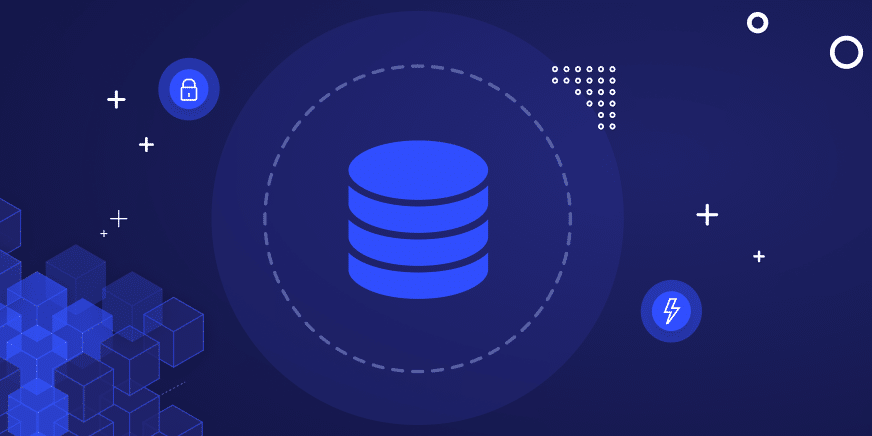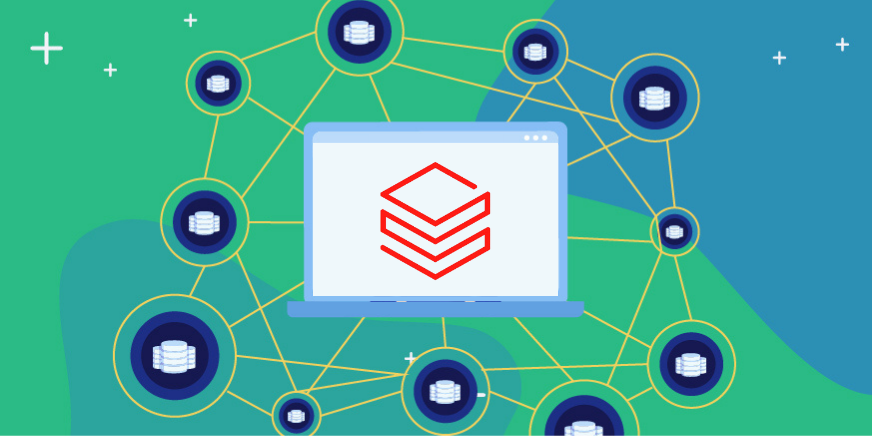For years, we have been following our mission of enabling companies to deliver quicker data-driven value in a secure and analytical way. Though our mission has stayed the same, we are continually adding more value to our offerings to ensure that we give our customers everything they need to win the data game.
In terms of streamlining data access in organizations, we are making data access simple and secure by allowing organizations to define datasets (even across hundreds of different databases) and control their access from a single pane.
We went even further by allowing organizations to define identity groups that can receive self-service data access by simply filling out a data request form which includes a business justification for accessing the data.
These automated workflows allow our customers to apply security policies on data access without writing a single SQL query, saving data engineering resources for other projects.
However, until now, users were only able to request data access by attempting to access it and then being redirected to a data access request form.
Today, we are announcing the Satori Data Portal which allows users to search for and request access to the datasets they want from a single, centralized location. We believe that this innovation will propel our customers to the next level of quick and secure data accessibility.
Better Data Security While Streamlining Access
A principle that is known to greatly benefit data security but that is difficult to apply to data access is the principle of least privilege. The principle of least privilege maintains that users should have the least privilege they need to provide value. However, monitoring privileges and revoking access when data is no longer needed is usually too time-consuming, and users often remain with privileges that are too high.
By using a data portal that enforces automatic removal of the data access privileges, companies can ensure that users get just-in-time access to data on a need-to-know basis, and, as soon as they no longer need the data, they lose access to it.
When Do Companies Need a Data Portal?
The short answer is: whenever they have cross-team data sharing. If a company lacks a central repository (such as a data catalog), where data sources in the organization are listed, people often tend to learn about data sources from hearsay. Even when companies have a data catalog, it is often not robust enough to provide the data consumer with immediate access to the data following the company’s security policies.
Having a data portal, where data consumers (i.e., users seeking data) can look for datasets and immediately request access to data can have an amazing impact on a company’s ability to execute data-driven projects and make data-driven decisions.
Why Don’t Companies Just Build a Data Portal?
Some of them do, but these are usually very large enterprises, where building an in-house product makes sense due to the scale of the problem, or due to the use of custom data stores. In most cases, creating a data portal that would be robust enough to allow quick secure access to data is simply not something data teams are capable of without neglecting other tasks and projects.
That is, until Satori’s solution.
Announcing the Satori Data Portal
As of today, Satori customers can set up their own data portals where data consumers can request access to the company’s data. Setting up a data portal is extremely simple, as it uses the existing datasets defined by Satori with their current abilities.
This means that, when a user applies to access data, the request will follow the workflow already defined for data access requests in the dataset configuration.
In addition, any security policies you apply to the datasets will apply to data requests done through the portal as well. This means that if a user requests access to a dataset, the access can be granted while dynamically masking any sensitive data.
Setting up the data portal is part of the standard license and does not incur additional costs.
Creating a Data Portal with Satori
The good news is that, with Satori, a data portal is automatically created by utilizing your dataset configuration. If you are already a Satori user (such as a data engineer or a data steward), all you need to do is go to the Data Portal page. The link is in the top right corner menu:
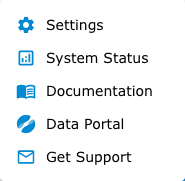
If you are not a Satori user, the default screen after SSO login to Satori will be the data access portal.
For more information about setting up your data portal, visit the documentation page.
Using the Data Portal
Once inside the data portal, you will see the datasets to which you can request access, as well as the datasets to which you already have access. In the following example, we have access to no datasets and have two datasets defined in the system: customer demographics and marketing ops:
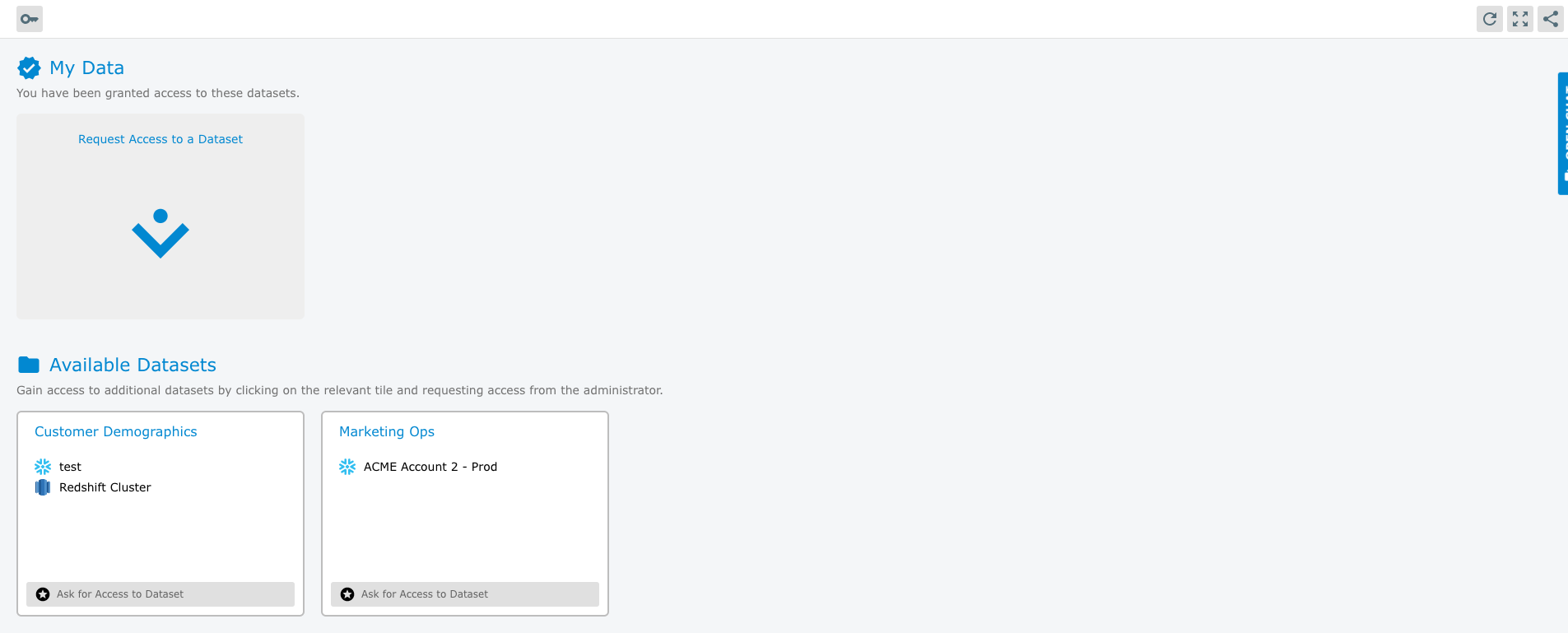
When we click on one of the available datasets, we can request access:
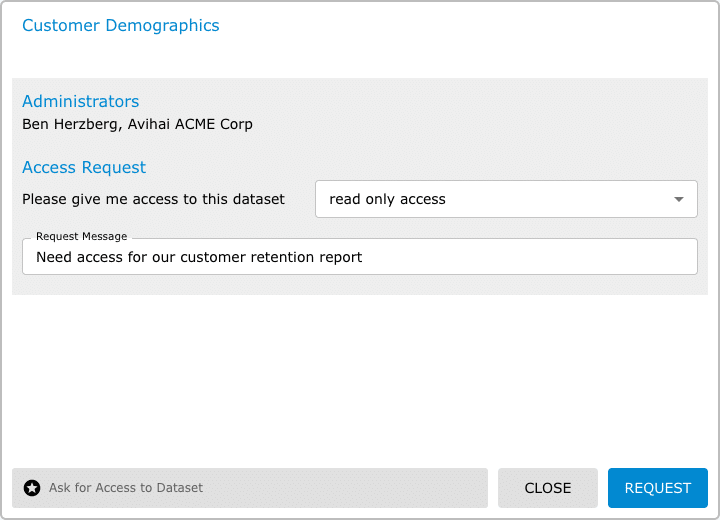
Once access is granted by the owners defined in Satori (using the Satori management console or integrations such as the Slack integration), you will be able to access the data, and it will appear in your approved datasets in the data portal:
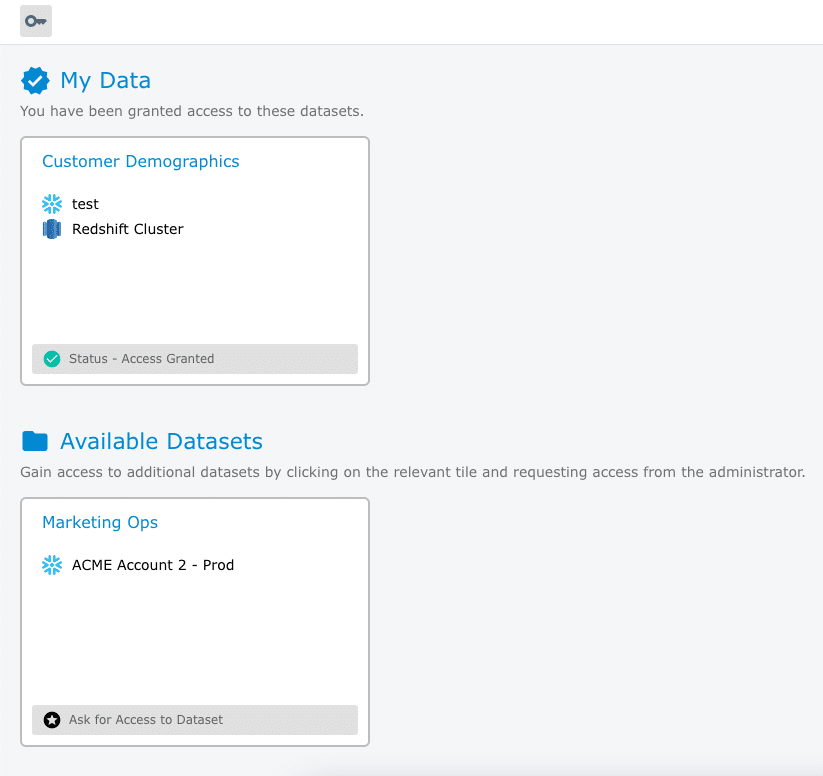
For complete instructions on how to set up your data portal, visit the documentation page.
The Future of Satori
With the release of the data portal, we are taking yet another step towards helping companies realize the value of their data in a secure manner. This is an exciting release for us, and it will be followed by even more capabilities aimed at further simplifying data access workflows.

